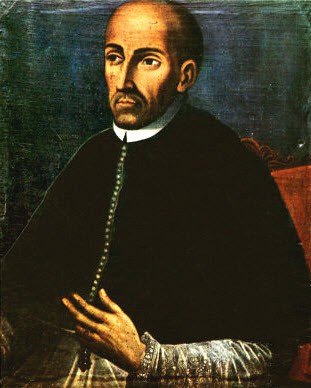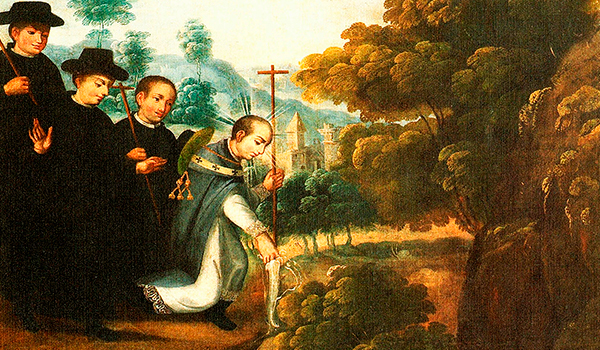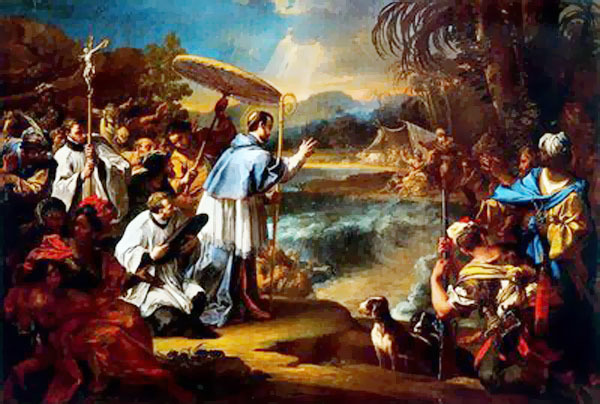St. Toribio de Mogrovejo
St. Toribio de Mogrovejo
Together with Rose of Lima, Turibio is the first known saint of the New World, serving the Lord in Peru, South America, for twenty-six years.
Born in Spain and educated for the law, he became so brilliant a scholar that he was made professor of law at the University of Salamanca and eventually became chief judge of the Inquisition at Granada. He succeeded too well. But he was not sharp enough a lawyer to prevent a surprising sequence of events.
When the archbishopric of Lima in Spain’s Peruvian colony became vacant, it was decided that Turibio was the man needed to fill the post: He was the one person with the strength of character and holiness of spirit to heal the scandals that had infected that area.

He cited all the canons that forbade giving laymen ecclesiastical dignities, but he was overruled. He was ordained priest and bishop and sent to Peru, where he found colonialism at its worst. The Spanish conquerors were guilty of every sort of oppression of the native population. Abuses among the clergy were flagrant, and he devoted his energies (and suffering) to this area first.

He began the long and arduous visitation of an immense archdiocese, studying the language, staying two or three days in each place, often with neither bed nor food. He confessed every morning to his chaplain, and celebrated Mass with intense fervor. Among those to whom he gave the Sacrament of Confirmation was Saint Rose of Lima, and possibly Saint Martin de Porres. After 1590 he had the help of another great missionary, Saint Francis Solanus.
His people, though very poor, were sensitive, dreading to accept public charity from others. Turibio solved the problem by helping them anonymously.

When Turibio undertook the reform of the clergy as well as unjust officials, he naturally suffered opposition. Some tried, in human fashion, to “explain” God’s law in such a way as to sanction their accustomed way of life. He answered them in the words of Tertullian, “Christ said, ‘I am the truth’; he did not say, ‘I am the custom.”‘